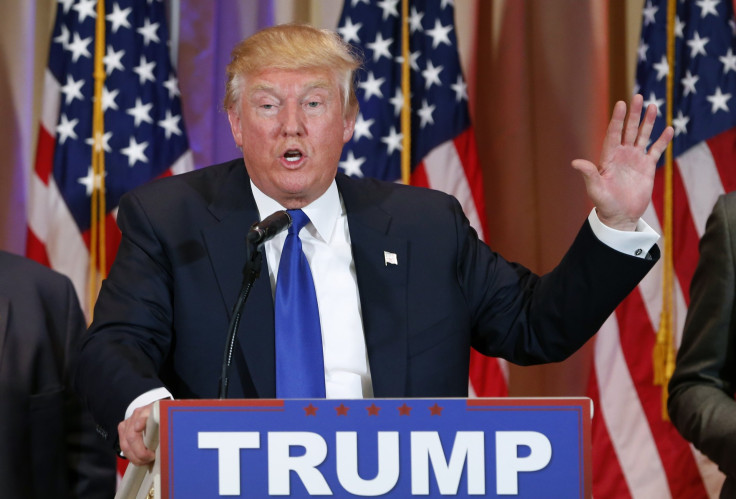Donald Trump Finally Released His Health Care Plan; How Seriously Should We Take It?

After months of speculation, Republican presidential candidate Donald Trump finally released the bare bones outline of his proposed health care reform plan late Wednesday night. According to some experts, it’s a doozy.
The sparsely worded seven-point proposal includes, but isn’t limited to:
Completely repeal Obamacare. Our elected representatives must eliminate the individual mandate. No person should be required to buy insurance unless he or she wants to.
Modify existing law that inhibits the sale of health insurance across state lines. As long as the plan purchased complies with state requirements, any vendor ought to be able to offer insurance in any state. By allowing full competition in this market, insurance costs will go down and consumer satisfaction will go up. (Whether these requirements are from the state the buyer is from or the state the vendor is from is left unclear.)
Remove barriers to entry into free markets for drug providers that offer safe, reliable and cheaper products. Congress will need the courage to step away from the special interests and do what is right for America. Though the pharmaceutical industry is in the private sector, drug companies provide a public service. Allowing consumers access to imported, safe, and dependable drugs from overseas will bring more options to consumers. (Apart from allowing people to purchase their drugs from other countries, the details are vague on how this exactly will happen.)
Allow individuals to use Health Savings Accounts (HSAs). Contributions into HSAs should be tax-free and should be allowed to accumulate. These accounts would become part of the estate of the individual and could be passed on to heirs without fear of any death penalty. These plans should be particularly attractive to young people who are healthy and can afford high-deductible insurance plans. These funds can be used by any member of a family without penalty. The flexibility and security provided by HSAs will be of great benefit to all who participate. (As Forbes’ Akik Roy notes, the wording behind this one is particularly strange since people can and already do fund HSAs at their leisure.)
The most perplexing thing about the Trump plan doesn’t have much to do with any one specific point, but rather with how familiar it all sounds. “Many elements of it correspond to the standard Republican expectations,” Dr. Leighton Ku, a Professor of Health Policy and Management at George Washington University, told Medical Daily. Aside from the customary pledge to repeal the ACA in full, that includes Trump’s idea to switch the current Medicare structure to a block-grant system.
It’s also perplexing because of Trump’s repeated insistence that his eventual plan would be “un-Republican” in its ability to provide universal health coverage. Or, as Trump himself put it in September, “I am going to take care of everybody. I don't care if it costs me votes or not. Everybody's going to be taken care of much better than they're taken care of now.”
To which Ku remarked, “I don’t see that [in the plan]. I mean, he talks about some things like letting health insurance be sold across state lines or letting people fully deduct their insurance premiums. But analyses of these issues have been done in the past. They make a dent, at best, in the number of uninsured people.”
Meanwhile, by repealing the ACA, and particularly the accompanying Medicaid expansion, Trump would effectively reverse the substantial gains made in reducing the uninsured population since its implementation, from 20.3 percent of Americans in 2013 to 13.2 percent in early 2015. “Darned if I understand how [universal health care] is going to happen,” Ku summed up.
Another hole in the Trumpian logic appears when you look at an unlisted point referencing immigration. If only we enforced the current immigration laws and stop giving out visas all willy-nilly, the plan claims, we’d substantially cut into the purported annual $11 billion in government money spent on health care for undocumented immigrants, and thus “relieve health care cost pressures on state and local governments.” While Ku hasn’t looked into whether that specific dollar figure holds any water, he argues the overall point is misleading.
“Certainly, all the information suggests that the government pays relatively little in terms of subsidized care for undocumented immigrants. We know that we spend far less on health care for immigrants than for those who are born in the U.S.” he said. “In addition, a paradox that very few people talk about is that, actually, undocumented immigrant workers contribute heavily to Medicare and Social Security and right now, they’re not getting any benefit out of it. If you’re undocumented, your taxes are being withdrawn for it but you’re not eligible. So essentially, they’ve been propping up Medicare for citizens for years.”
Trump’s figure appears to come from a 2010 report from the Federation for American Immigration Reform (FAIR), an anti-immigrant group that inflated its numbers by including the medical costs of children born in the United States to immigrant families. Meanwhile, a 2009 study from the Center for Immigration Studies estimated that the annual cost of treating uninsured, undocumented immigrants at emergency rooms and community health clinics was $4.3 billion.
The real problem with Trump’s plan, according to Ku, is Trump.
“The thing that ends up being somewhat of a concern about virtually everything Donald Trump says is who knows how long he believes it for. Apparently, he didn’t believe these things a month ago when he was talking about universal health care. What happens a month from now? Or if he becomes the nominee or president?” Ku concluded. “That’s the key question. He’s not shown a strong level of consistency or detailed thought about his plans.”



























